HFSPO Secretary-General Prof. Pavel Kabat and Deputy Secretary-General Hirokazu Kumekawa visited Japan from 16 to 20 May for a week of high-level meetings with representatives of the Japanese Government and the Embassies of some of the HFSPO Members as well as the leadership of the major Japanese science and technology agencies. This was Prof. Kabat’s second visit to Japan since taking up the post of Secretary-General in July 2021. It was an opportunity to build on the successful outcome of his previous trip in November-December 2021.
HFSPO President Prof. Shigekazu Nagata and Prof. Yoshinao Mishima, HFSPO Trustee and President of the Japan Agency for Medical Research and Development (AMED), oversaw the preparations for the five-day visit.
Since the beginning of the Human Frontier Science Program (HFSP), Japan has been one of its leading supporters and Japanese scientists are among the most successful in the Program. Over 400 postdoctoral researchers from Japan have received HFSP Fellowships, more than for any other country. Japan ranks third in terms of the number of research grants to researchers based in the country (481 grants in total). Over 100 Japanese research institutions have hosted HFSP grantees, with the University of Tokyo ranking top in terms of the number of grant holders out of all the institutions worldwide that have participated in the Program.
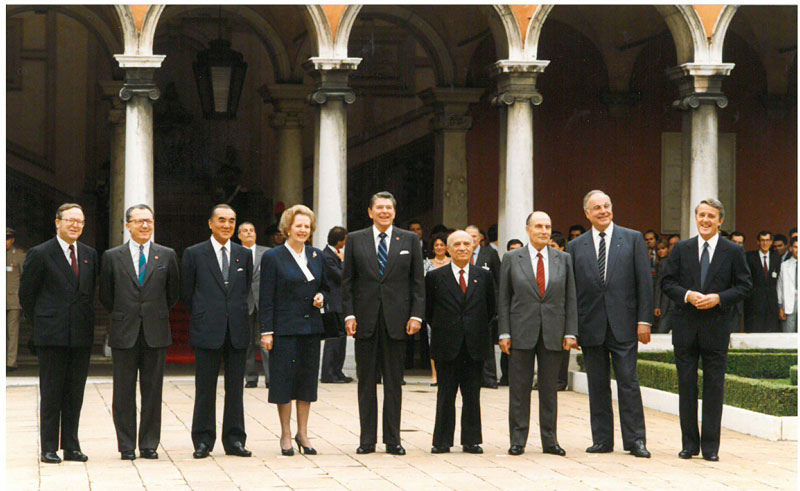
Heads of State of the G7 nations and European Commission at their summit in 1987 (Prime Minister Nakasone is third from the left)
Former Prime Minister Mr. Yasuhiro Nakasone of Japan first proposed his idea of a global research program to foster international cooperation for the benefit of humankind at the G7 summit in 1987. This initiative led to the establishment of HFSP in 1989. During this trip, Prof. Kabat was honoured to meet Mr. Hirofumi Nakasone, Member of the House of Councilors, and Mr. Yasutaka Nakasone, Member of the House of Representatives, the son and grandson (respectively) of Mr. Yasuhiro Nakasone.
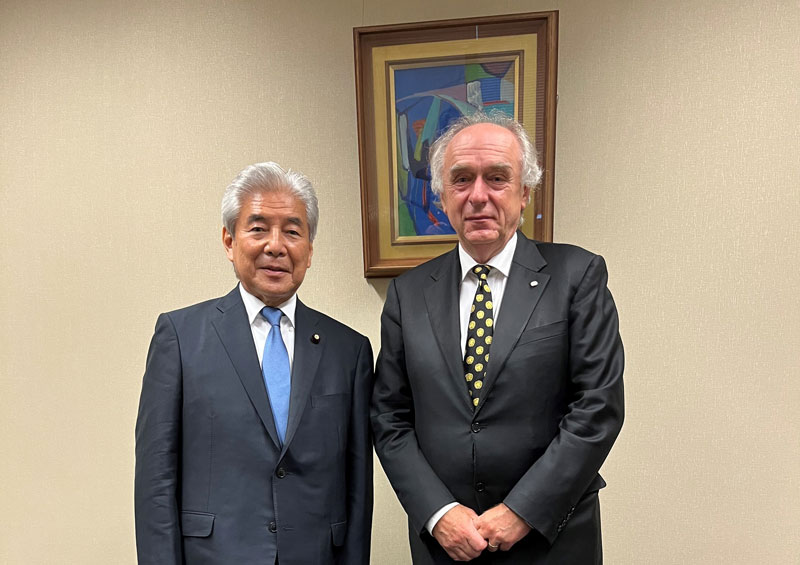
Mr. Hirofumi Nakasone and Prof. Kabat
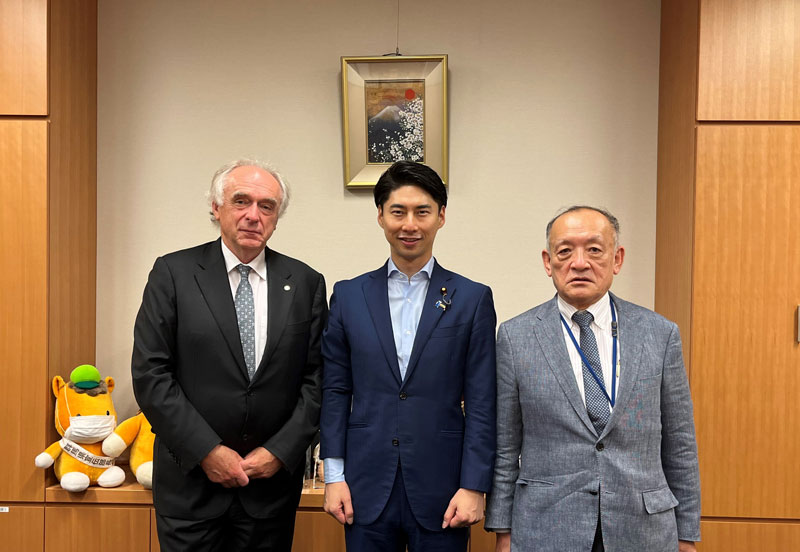
Prof. Kabat, Mr. Yasutaka Nakasone and Prof. Shigekazu Nagata
During the visit, Prof. Kabat participated in the Japan HFSP Committee meeting to discuss the new HFSPO strategy. Participants included Prof. Nagata, Prof. Mishima and Prof. Kikkawa of the University of Tokyo, the Vice-Chair of the HFSPO Council of Scientists, Dr. Tomomi Shimogori of RIKEN, Chair of the HFSPO Research Grant Review Committee, Dr. Jun Kitano of the National Institute of Genetics, member of the HFSPO Research Grant Review Committee, Dr. Takashi Tsuchimatsu, a member of the HFSPO Fellowship Review Committee, and Dr. Hitoshi Kuboniwa of the Japan Bioindustry Association. He also met with representatives of HFSPO’s Management Supporting Parties (MSPs) at the Ministry of Education, Culture, Sports, Science and Technology (MEXT), the Ministry of Economy, Trade and Industry (METI) and the Japan Agency for Research and Development (AMED) as well as their supervising body, the National Healthcare Policy Secretariat of the Cabinet Office (CAO), where discussion was focused on raising the visibility and attractiveness of the Program in Japan and the great potential of HFSP funded research in driving innovation.
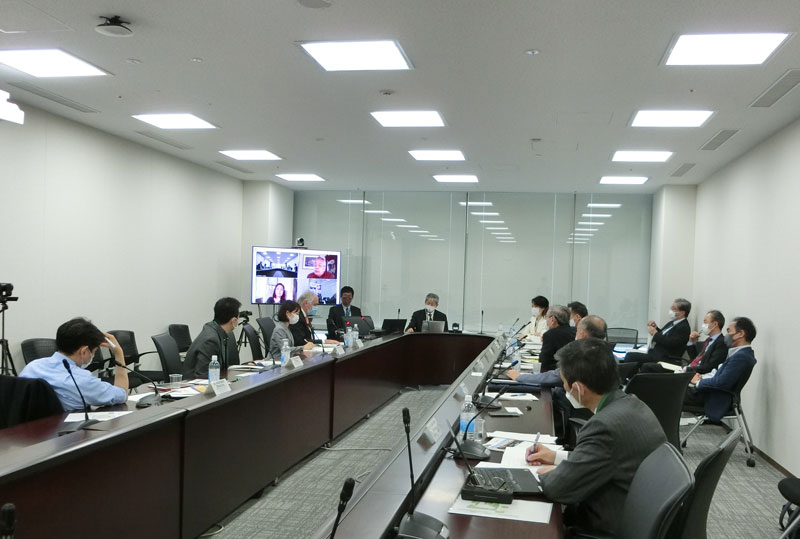
Japan HFSP Committee meeting
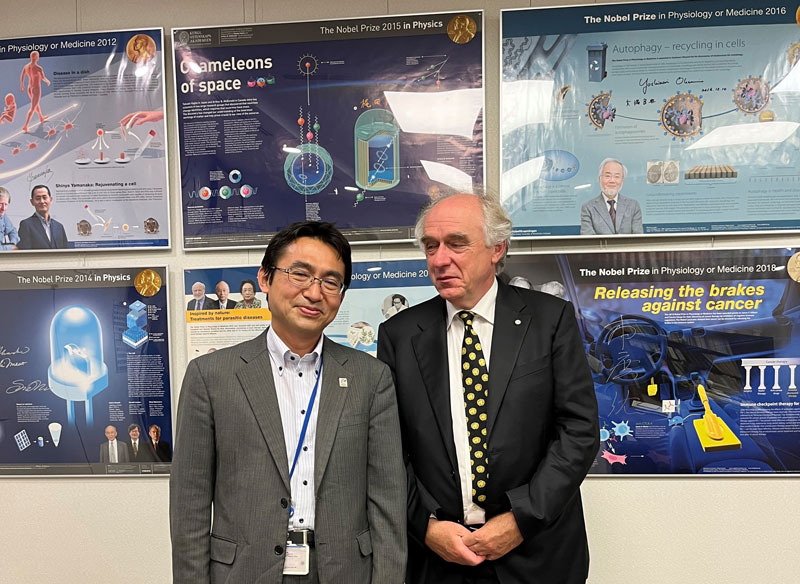
Dr. Shuichi Sakamoto, Deputy Director General, Research Promotion Bureau, MEXT and Prof. Kabat
Further discussion took place with Prof. Takahiro Ueyama, the Executive Member of the Council for Science, Technology and Innovation (CSTI) and representatives of its Secretariat. Discussion focused on the promotion of global brain circulation and enhanced visibility of HFSP across the world. The global aspects of HFSP’s initiatives were also discussed and supported by the Ministry of Foreign Affairs (MOFA) in the context of Science diplomacy.
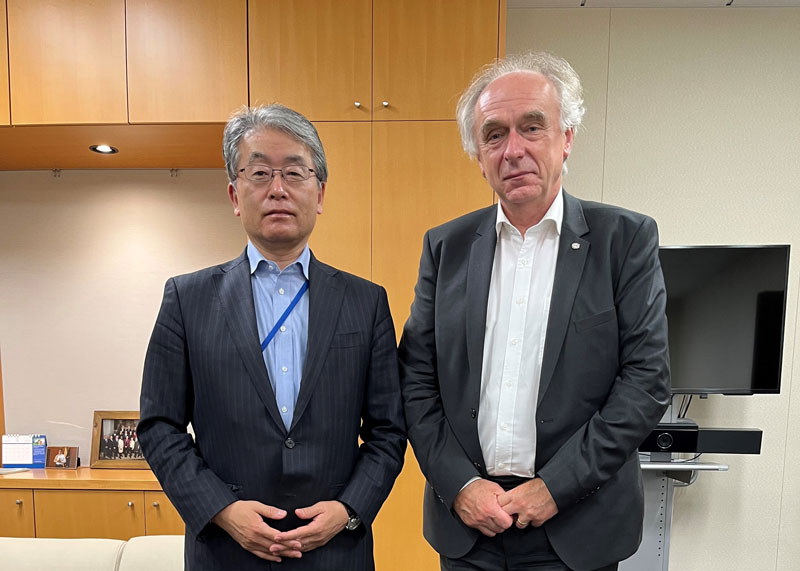
Prof. Takahiro Ueyama, Executive Member of the Council for Science, Technology and Innovation (CSTI) and Prof. Kabat
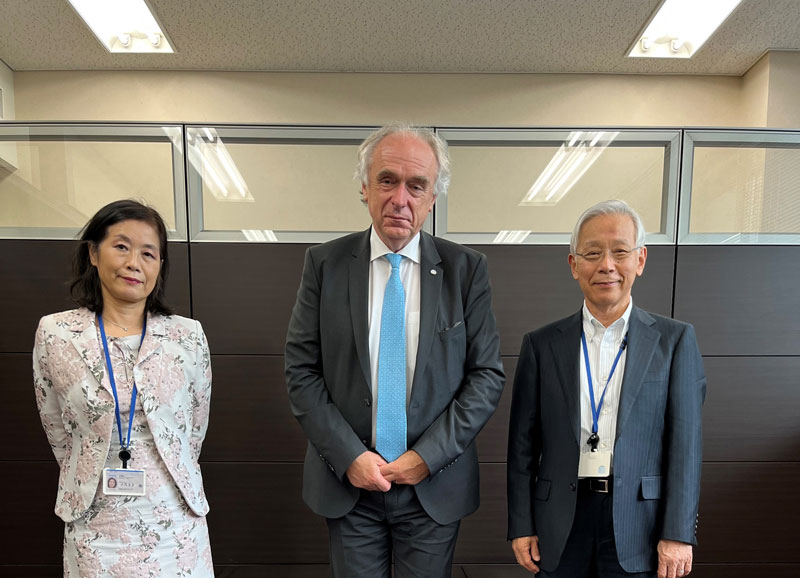
Prof. Motoko Kotani, Science and Technology Co-Advisor to the Minister for Foreign Affairs, Prof. Kabat and Prof. Yoichiro Matsumoto, Science and Technology Advisor to the Minister for Foreign Affairs
The trip was also an opportunity for a number of diplomacy visits to the embassies of HFSPO’s Members in Tokyo. His Excellency Mr. Philippe Setton, Ambassador of France to Japan, received Prof. Kabat at the Embassy in Tokyo. The Ambassador agreed to assist Prof. Kabat in negotiations for the next Triennial Conference of HFSPO Members to be hosted in Paris in 2023, an event that will be co-hosted by Japan. Meetings were also held at the US Embassy and the EU Delegation to Japan, which organised a meeting of the scientific attaches from a number of embassies in Tokyo, during which Prof. Kabat presented the Human Frontier Science Program.
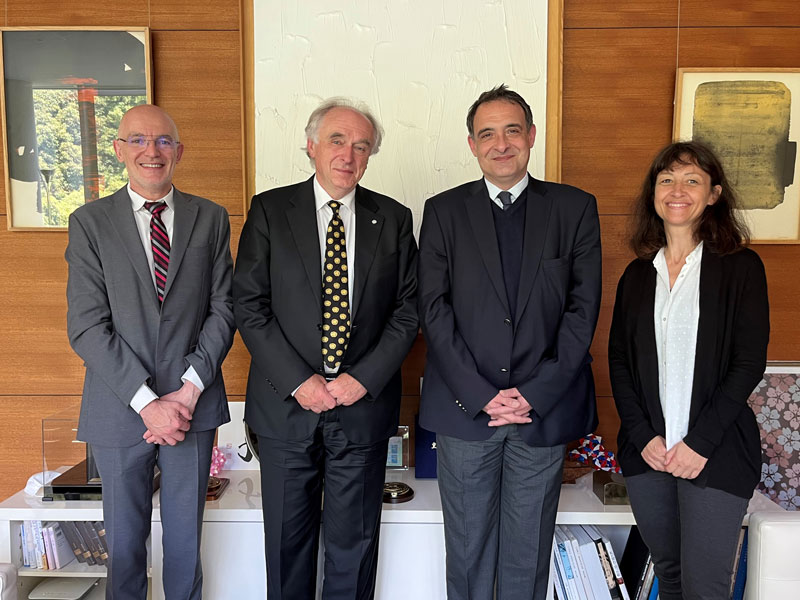
Marty-Dessus, Counsellor for Science and Technology, Prof. Kabat, His Excellency Mr. Philippe Setton, Ambassador of France to Japan, Dr. Myriam Baratin, Attache for Science and Technology
Prof. Kabat met with the leadership of Japan’s main science and technology agencies to discuss, among other things, how to improve the visibility of HFSP in Japan and how to attract Japanese researchers working abroad back to the country. Meetings took place with the STS Forum, the Japan Science and Technology Agency (JST), the Japan Society for the Promotion of Science (JSPS) and the Strategic Center of Biomedical Advanced Vaccine Research and Development for Preparedness and Response (SCARDA) of AMED. Prof. Kabat was pleased to have the opportunity to visit two of Japan’s leading academic and research institutions, meeting with the President of the University of Tokyo, Dr. Teruo Fujii, and the Executive Director of RIKEN, Dr. Shigeo Koyasu.
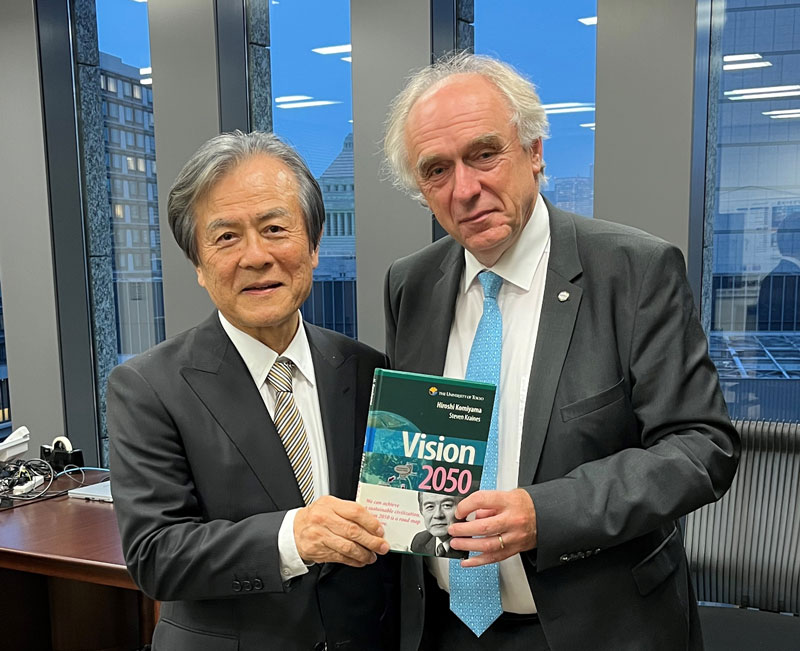
Prof. Kabat and Prof. Hiroshi Komiyama, Chairman of the STS Forum


































